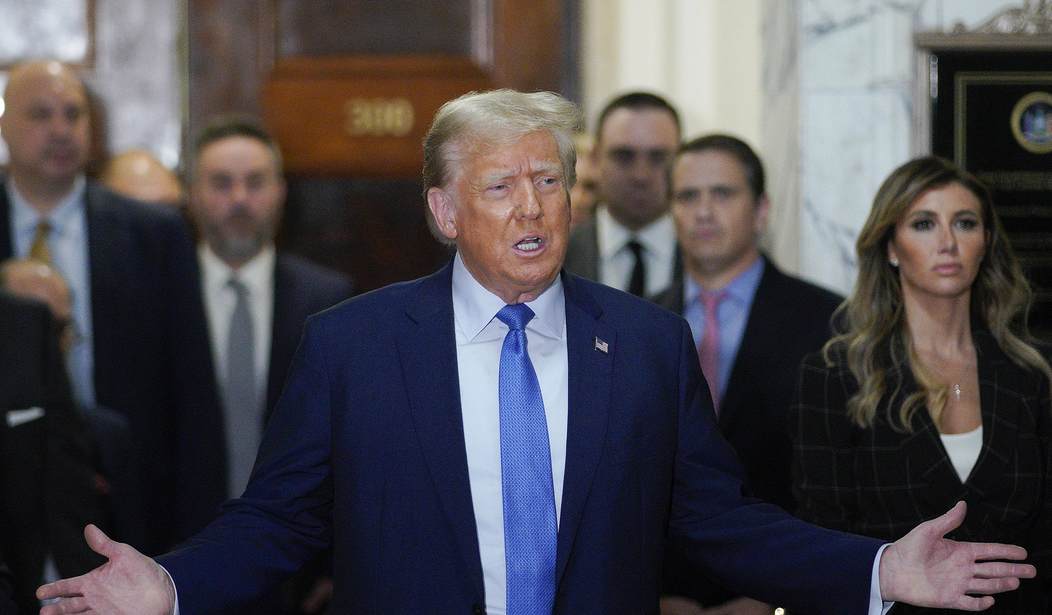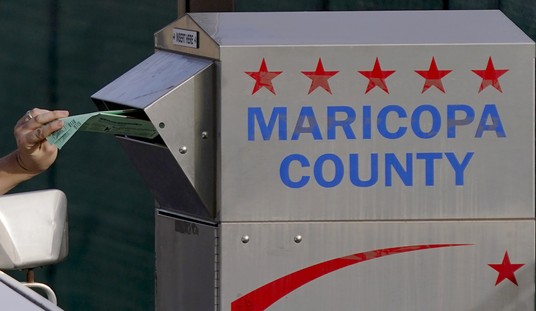Wednesday was a mixed bag for former President Donald Trump on the legal front: He snagged a win with the Supreme Court agreeing to take up the presidential immunity issue in Special Counsel Jack Smith's D.C. prosecution of him for election interference. But he was dealt a loss by Illinois Circuit Court Judge Tracie Porter, who ordered his name removed from that state's March 19 primary ballot.
READ MORE:
Supreme Court Will Take Up Trump Immunity Claim
Illinois Judge Removes Trump From State’s Primary Ballot
But of more immediate and negative consequence perhaps was the ruling by New York Appellate Division Associate Justice Anil Singh that the mega-millions in penalties imposed on Trump by Judge Arthur Engoron in the civil fraud trial would not be placed on hold pending his appeal. In other words, Trump must put up the full amount in order to proceed with the appeal.
Justice Anil Singh temporarily denied the former president’s request to stay the enforcement of the more than $454 million in penalties a different New York judge ordered him to pay for conspiring to alter his net worth to receive tax and insurance benefits.
Trump had offered to post a $100 million bond while the appeals process plays out, writing in court filings that the staggering judgment made it “impossible” to secure a bond covering the full amount. Posting a bond in the full amount would automatically halt enforcement of the penalties.
...
“The exorbitant and punitive amount of the Judgment coupled with an unlawful and unconstitutional blanket prohibition on lending transactions would make it impossible to secure and post a complete bond,” Trump’s lawyers wrote in a nearly 1,800-page court filing.
There is, however, one bright spot in the ruling: Singh did temporarily stay the application of two other facets of Engoron's ruling, namely, that the defendants may not apply for loans from New York lending institutions nor serve in an executive capacity in any of Trump's New York companies.
In his ruling on Wednesday, Singh lifted a court-ordered ban on Trump’s ability to obtain loans from New York financial institutions to help raise the $454 million. The ruling also allows Donald Trump Jr. and Eric Trump to continue to run the family company, but ordered them to post more than $4 million to cover the cost of their appeals.
From a practical standpoint, then, Trump should (in theory) be able to secure a bond to cover the full amount of the judgment and proceed with the appeal. Still, securing the funds necessary to do so presents a daunting challenge, as explained by George Washington Law professor Jonathan Turley in the below tweet thread:
...Notably, the witnesses for banks said that they did not lose any money on the prior deals and wanted more business with Trump. This will give banks that opportunity. Notably, a bond would still cost Trump a considerable amount even if he prevails. https://t.co/OT6qYwXk8t
— Jonathan Turley (@JonathanTurley) February 28, 2024
...This remains a daunting burden. Banks may have to weigh the merits of a novel case to judge the risk. Ordinarily, such risk or unknowns impact the conditions of the loan. Trump could take a further appeal on the deposit issue but he is presumably working the market for a loan…
— Jonathan Turley (@JonathanTurley) February 28, 2024
Presumably, the Trump team will nevertheless find a way to push forward with the appeals. One thing is for certain: The lawyers are keeping busy.
RELATED:
Judge Orders Trump to Pay Over $350 Million, Bars From NY Business in Civil Fraud Case
Trump Appeals $450M NY State Fraud Judgment, Calls Out 'Fake Political Prosecutions'
Exposed: Public Info Reveals New York AG Letitia James Lives High on the Public Hog














Join the conversation as a VIP Member